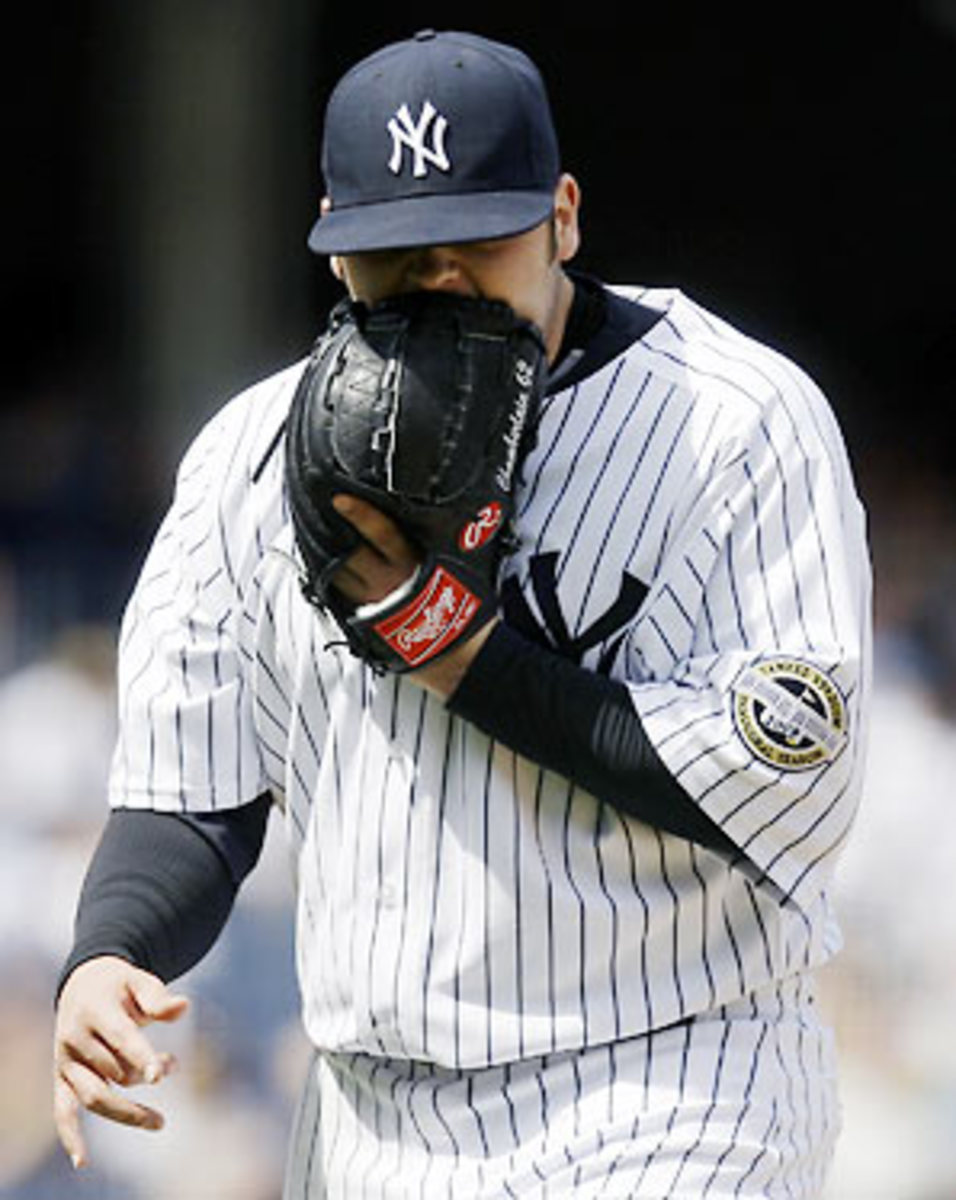
With the Yankees' current makeup, Joba probably belongs in the 'pen
Although Big Papi's vitriol wasn't quite up to the standard of "Rowdy" Roddy Piper's, there was something vaguely WWE about it -- and that's fitting of a rivalry in which the mutual hatred has recently begun to feel more manufactured than genuinely felt. We're now five seasons removed from the 2004 ALCS, the last Sox-Yanks series that really, really meant something, and just eight players remain on the club with which they participated in that seven-game classic: three Red Sox (Ortiz, Jason Varitek and Tim Wakefield) and five Yankees (Derek Jeter, Hideki Matsui, Jorge Posada, Mariano Rivera and currently injured Alex Rodriguez). Sure, sales of innuendo-emblazoned anti-Jeter T-shirts remain brisk on the streets surrounding Fenway, and one expects that when the Red Sox come to town two weeks from now, those padded field-level seats in the new Yankee Stadium will be fuller than they have thus far been. But the continual roster overhauls on both sides since '04 (no Manny, no Pedro, no Schilling; no Mussina, no Bernie, no Giambi) have made it so that while the majority of the players on each team know that they're supposed to start frothing at the mouth when the opportunity to play their rival presents itself, they've never actually experienced the rivalry at its most heated.
Still, even though some of the juice has been squeezed out of each Sox-Yanks series -- and we certainly get enough of them; Major League Baseball's schedule-makers make certain of that -- the series, in real terms, remain no less unimportant. They're important, of course, as far as the standings go; but they're equally important -- particularly these early season ones -- in that they allow each club to take measure of its players when they're competing against an opponent that is second to none. And for the Yankees this weekend, no player will command as much scrutiny as Chamberlain, who will start Friday night's game opposite Jon Lester.
The 24-year-old flamethrowing Nebraskan now has 14 big-league starts under his belt, and thanks to a combination of limited pitch counts, poor run support, shaky bullpen work and uneven performances, he's won just three of them. He's walked at least four batters in five of those starts, and for every outing in which he's been dominant -- such as the one he turned in last July 25, when he struck out nine batters over seven shutout innings at Fenway -- there's been one like last Friday's, when he walked five Cleveland Indians and allowed as many earned runs in 4.2 innings. Chamberlain hasn't by any means been bad in his cumulative half-season as a starter (3.08 ERA, 9.8 strikeouts per nine innings), but he hasn't been nearly as effective as in his 49 career relief appearances (1.53 ERA, 11.9 K's/9), in which he can release his 97 MPH fastball and biting slider with impunity, without having to worry about saving something for the next inning, or the next.
Should Chamberlain falter on Friday night against Boston's power-packed lineup, the Yankees might want to start considering returning him to the bullpen full-time, with an eye on making him their closer for the next decade should the still-incomparable Rivera succumb to injury or, more likely, age. Rivera will turn 40 years old in November, and even though he's showing no signs of decline as of yet (he's thrown seven scoreless innings so far in '09), when that decline comes, it could come fast. Even if Rivera continues to perform at a Hall of Fame-level for the next couple of seasons, the Yankees could do worse than to turn Joba into a lights-out, game-shortening eighth-inning apprentice -- as Rivera was to John Wetteland in 1996, when New York won the first of four World Series titles in five seasons. And the bullpen, which is currently sporting a ghastly 6.00 ERA, could certainly use the help.
The Yankees' decision (and they have thus far given no indication that they're viewing Chamberlain as anything other than a starter, unless, as manager Joe Girardi said several times during spring training, "he falls on his face") might be expedited due to the recent performances of Phil Hughes and Ian Kennedy, both of whom flunked in their first shots at becoming members of the rotation as rookies last season. Hughes, who is still just 22, was impressive this spring and through three starts with Triple-A Scranton/Wilkes Barre is 3-0 with a 1.86 ERA and 19 strikeouts in 19.1 innings, and Kennedy has been almost as good in his three Triple-A starts: 1-0, with a 2.00 ERA and 21 K's through 18 frames.
If Girardi and GM Brian Cashman decide that either Hughes or Kennedy is ready for prime time -- and a poor performance from Chamberlain on Friday night against the Sox could expedite that decision -- they could slide Chamberlain to the eighth inning and promote one of them (or both, should Chien-Ming Wang be shelved after his horrendous start to the season) into the rotation. With Chamberlain and Rivera ready to control the end of games, and some pressure taken off of Brian Bruney and the rest of the bullpen, Hughes and/or Kennedy (as well as CC Sabathia, A.J. Burnett and Andy Pettitte) would have the comfort of knowing that they'd only be required to turn in, say, six strong innings per night, as games would be essentially over after that. That's a scenario that the Red Sox could truly learn to hate.




